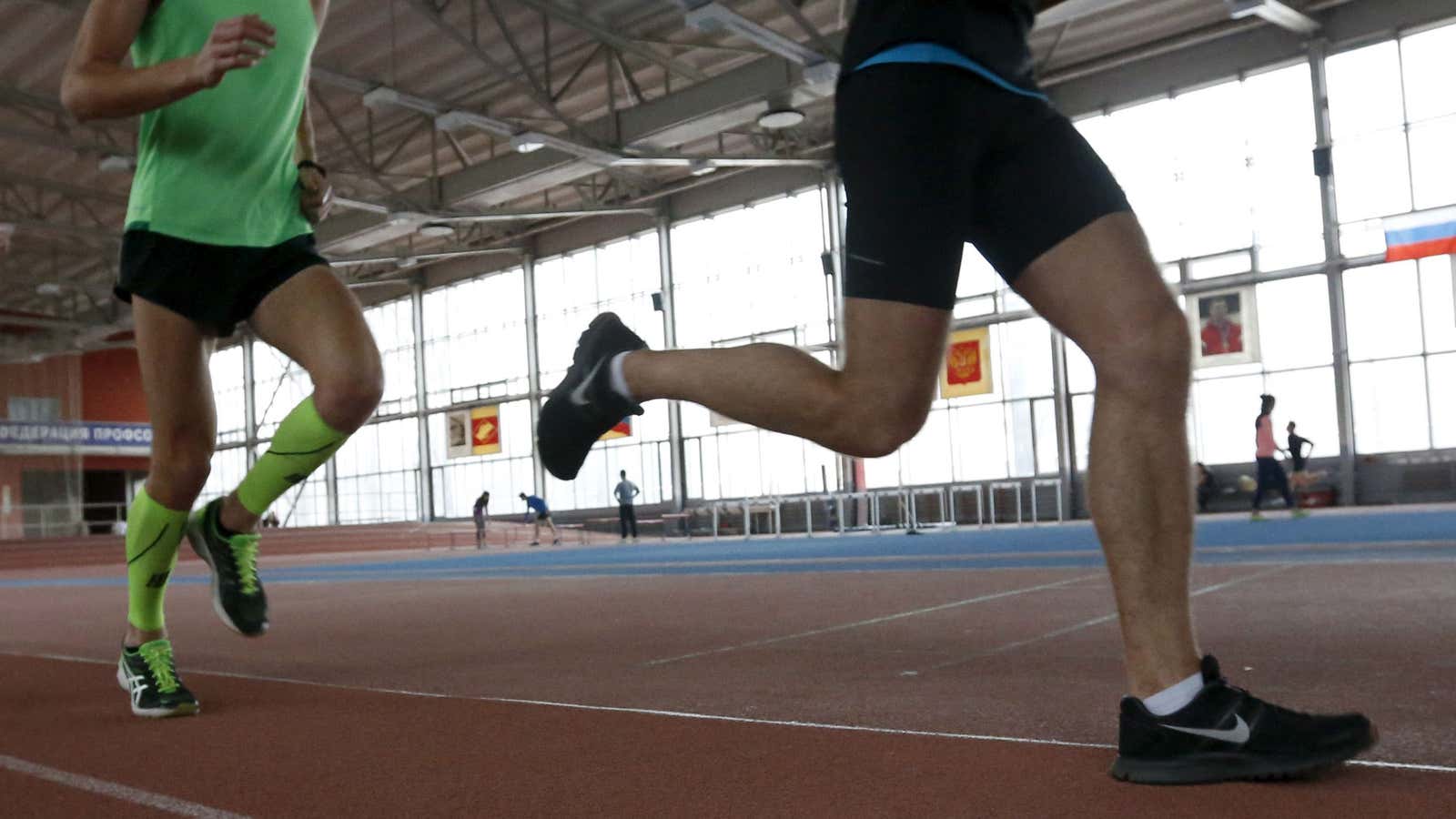The International Olympic Committee is using hindsight to crack down on doping. After re-testing more than 400 samples from the 2008 Olympics in Beijing, the committee announced that the tests of 31 athletes from 12 countries had produced suspicious results. The committee is investigating its findings, but depending on what it discovers, those athletes (whose names have not been disclosed) could be banned from competing in Rio this summer.
Re-testing is routine for the IOC, which hangs onto samples for 10 years in case new testing technology emerges. The revelations from Beijing are unlikely to be the last to emerge from reviewing drug tests: Other cases could come up as samples gathered for the 2012 Olympics in London are re-tested. Additionally, the IOC plans to investigate doping allegations surrounding the 2014 Sochi winter games, after a shocking report on doping practices conducted by none other than Russia’s anti-doping officials.
During the Sochi Olympics, Russia’s anti-doping director, Dr. Grigory Rodchenkov, would give athletes forbidden steroids, which helped them win some of the country’s 33 medals, he told The New York Times. Rodchenkov would mix a combination of three anabolic steroids with liquor: whiskey for men and vermouth for women.
A man who Rodchenkov says was a member of the Russian intelligence would then swap out the athlete’s urine samples for clean ones, all using supposedly tamper-proof glass containers.
After international authorities revealed Rodchenkov’s involvement in another doping scandal, he was forced to resign, and fled to Los Angeles in fear for his life. Now he is offering the IOC help in the Sochi investigation.
